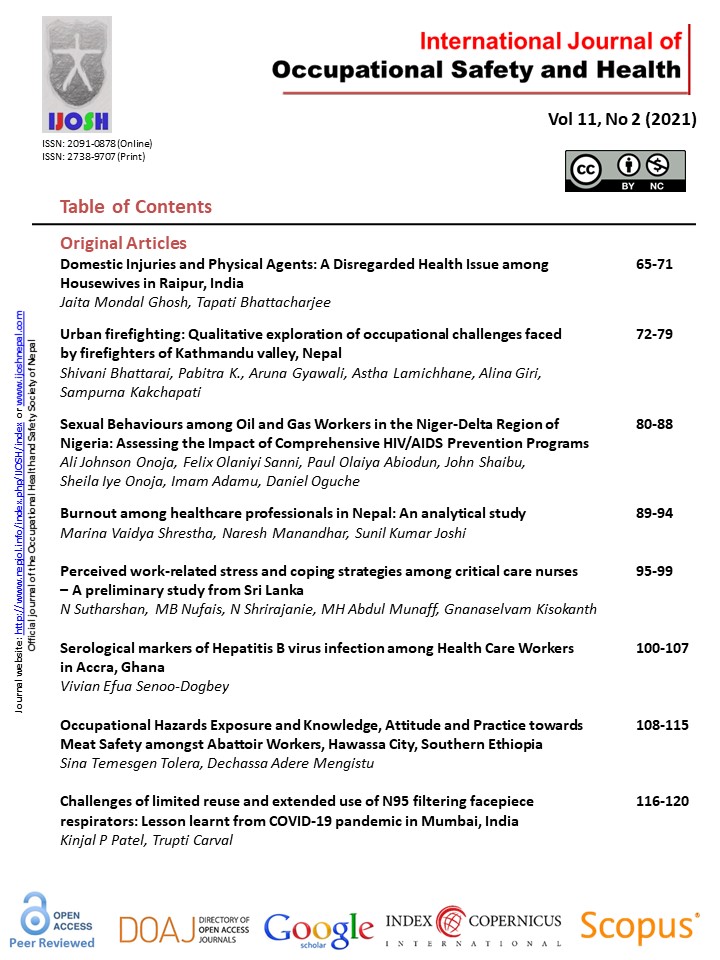Burnout among healthcare professionals in Nepal: An analytical study
DOI:
https://doi.org/10.3126/ijosh.v11i2.37259Keywords:
Burnout, Compassion, Health workers, SatisfactionAbstract
Introduction: The greater risk of burnout among healthcare professionals is likely to develop an adverse effect on their personal life and the patients’ care. The main aim of this study was to assess the levels of burnout experienced by healthcare workers.
Methods: A cross-sectional study was conducted from November 2020 to March 2021 among healthcare professionals working in different institutions. A convenient sampling technique was applied. An online questionnaire was developed using Google Forms.
Results: The total burnout score among health professionals ranged from low (9.5%), moderate (89.5%) to high (1%). The burnout scores reported were of moderate level among doctors (89%) and nurses (92.2%). There was a negative correlation between burnout and compassion satisfaction (r = - 0.207: p<0.003). Healthcare professionals perceived burnout from time pressure (22.2%), followed by administrative work (20.1%) and dealing with patient’s relatives (13.5%). The identified effective way to minimize burnout was family support (29.1%), friends (21.2%), and their interest/hobbies (15.4%).
Conclusion: Healthcare professionals in Nepal bear a moderate level of burnout. The main sources of burnout experienced by health workers were time pressure, administrative work, and dealing with patients’ relatives.
Downloads
Downloads
Published
How to Cite
Issue
Section
License
This license enables reusers to distribute, remix, adapt, and build upon the material in any medium or format for noncommercial purposes only, and only so long as attribution is given to the creator.





